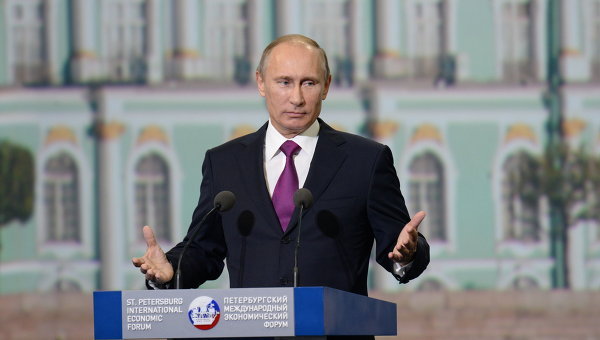MOSCOW, July 3, (RAPSI) - President Vladimir Putin has imposed a ban on child adoption by same-sex couples in Russia, the Kremlin Press Service announced on Wednesday.
"This measure is aimed at guaranteeing that children are brought up by their adoptive families in a balanced and complete environment and that their mental wellbeing is not affected by any unwelcome influences, such as the imposition of unconventional sexual behavior, and also that children are protected from developing complexes and mental distress which psychological research has shown children often experience when brought up by same-gender parents," the statement says.
The amended Family Code will prohibit the adoption of Russian children by foreign same-sex couples and by single individuals in countries that have legalized same-sex marriage.
The initiative came after France, which has an international adoption agreement with Russia, passed a controversial legislation allowing gay couples to marry and adopt children.
At present, same-sex marriages are allowed in 13 countries - the Netherlands, Belgium, Spain, Canada, South Africa, Norway, Sweden, Portugal, Iceland, Argentine, Denmark, Brazil, and France. Columbia, Uruguay and New Zealand have passed LGBT marriage legislation, which will come into force by the end of this year. Although same-sex marriages cannot be performed in Israel and Mexico, these two countries nevertheless recognize same-sex marriages performed in other countries. Gay marriage is also allowed in 13 states in the United States.
The bill also increases one-time assistance payments for adopted children with disabilities aged 7 years and older and also for adopted siblings to 100,000 rubles ($3,160) from the current 13,000 rubles ($410).
Furthermore, the new law reaffirms the current requirement for a 16-year age difference between the single adoptive parent and the adoptee, with a reservation that any variation from this must be approved by a court.
The initial bill proposed deleting this provision, but parliament argued that this may be in pedophiles' favor.
The new law also introduces the notion of family monitoring, which will concern all families, including children under guardianship and adopted children.
The law sets a series of qualification requirements for child protection service employees. It also regulates the interaction between child protection services and the local authorities. Child protection services will be required to report any children whom they have found to be living without care to the regional databank within three days (down from one month). They will have to look into the childs living conditions, identify the child as deprived of care and submit a report within three days.



